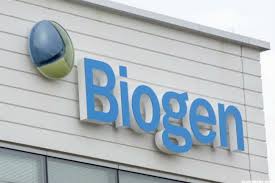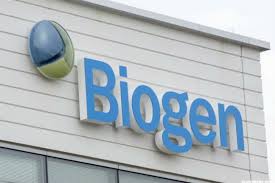
The shares of Biogen Inc. – a pharma company, saw a surge of 20 per cent in a single day following the revelation of results of its experimental drugs indicated that the treatment could slow the progression of Alzheimer’s. These very drugs of the company had shown disappointing results in December and the most recent results were formulated after the company analyzed the data for another six months.
Over the years, about 200 attempts to find a drug for the disease have failed drastically which has bene the typical graph for the efforts to find a treatment for Alzheimer’s disease. Drug makers have adopted a trial and error approach to the efforts where they try one approach, fail and then they start all over again with another approach to finding a cure.
The results of the efforts of Biogen and its Japanese partner Eisai Co. have now showed positive results.
“We are very encouraged,” said Samantha Budd Haeberlein, vice president of clinical development at Cambridge, Massachusetts Biogen. “We believe that we’ve got the right molecule and that we have a good trial design. Many of the previous failures have had one or the other of those two things missing.”
Many were quite surprised with the data of Biogen – particularly because the protein - beta amyloid, is targeted by the drug and this protein had been earlier targeted and failed in multiple efforts. The attempts had been made by some of the biggest names in the pharma industry including Pfizer Inc., Merck & Co., Eli Lilly & Co., and Johnson & Johnson.
Questions on treatment attempts that focused on beta amyloid were raised after a big failure to the efforts of Lilly in finding a treatment for the disease at the end of 2016. Beta amyloid is a protein that gets dumped in the brain of an Alzheimer’s patient.
The reported success for Biogen was for its experimental therapy that the firm calls BAN2401. Patients who were administered the highest dose showed slower progression of the Alzheimer’s disease, Biogen and Eisai said. The companies said that more further details of the experimental drug would be released in a scientific meeting later even though no date for that was announced.
The results achieved and announced by Biogen is good news for the Roche Holding AG because this pharma company is experimenting with a pair of potential beta amyloid-targeting therapies and the experiments are at a late stage.
“It’s moving us farther down that trail that says this is a good pathway to target,” said Rachelle Doody, global head of neurodegeneration at Basel, Switzerland-based Roche. “The negative studies have still taught us a lot, and the weight of the evidence is that one of the pathways to target is the amyloid pathway.”
“The amyloid hypothesis, you’ve always had people who’ve loved it and people who’ve hated it,” said Keith Fargo, director of scientific programs at the Alzheimer’s Association. “I think you’ve had some people prematurely declare it dead.”
(Source: www:livemint.com)
Over the years, about 200 attempts to find a drug for the disease have failed drastically which has bene the typical graph for the efforts to find a treatment for Alzheimer’s disease. Drug makers have adopted a trial and error approach to the efforts where they try one approach, fail and then they start all over again with another approach to finding a cure.
The results of the efforts of Biogen and its Japanese partner Eisai Co. have now showed positive results.
“We are very encouraged,” said Samantha Budd Haeberlein, vice president of clinical development at Cambridge, Massachusetts Biogen. “We believe that we’ve got the right molecule and that we have a good trial design. Many of the previous failures have had one or the other of those two things missing.”
Many were quite surprised with the data of Biogen – particularly because the protein - beta amyloid, is targeted by the drug and this protein had been earlier targeted and failed in multiple efforts. The attempts had been made by some of the biggest names in the pharma industry including Pfizer Inc., Merck & Co., Eli Lilly & Co., and Johnson & Johnson.
Questions on treatment attempts that focused on beta amyloid were raised after a big failure to the efforts of Lilly in finding a treatment for the disease at the end of 2016. Beta amyloid is a protein that gets dumped in the brain of an Alzheimer’s patient.
The reported success for Biogen was for its experimental therapy that the firm calls BAN2401. Patients who were administered the highest dose showed slower progression of the Alzheimer’s disease, Biogen and Eisai said. The companies said that more further details of the experimental drug would be released in a scientific meeting later even though no date for that was announced.
The results achieved and announced by Biogen is good news for the Roche Holding AG because this pharma company is experimenting with a pair of potential beta amyloid-targeting therapies and the experiments are at a late stage.
“It’s moving us farther down that trail that says this is a good pathway to target,” said Rachelle Doody, global head of neurodegeneration at Basel, Switzerland-based Roche. “The negative studies have still taught us a lot, and the weight of the evidence is that one of the pathways to target is the amyloid pathway.”
“The amyloid hypothesis, you’ve always had people who’ve loved it and people who’ve hated it,” said Keith Fargo, director of scientific programs at the Alzheimer’s Association. “I think you’ve had some people prematurely declare it dead.”
(Source: www:livemint.com)














